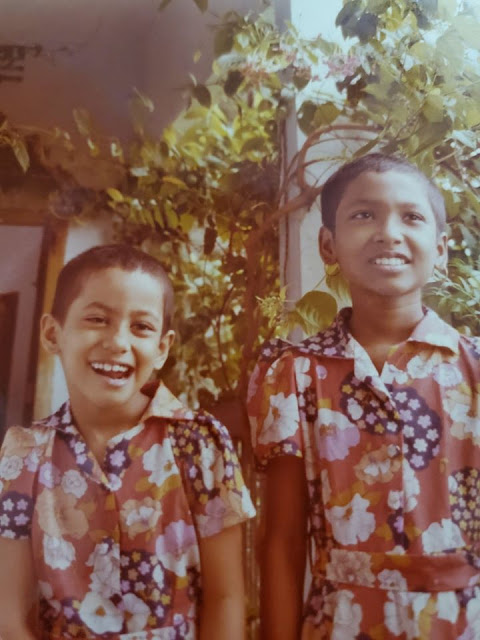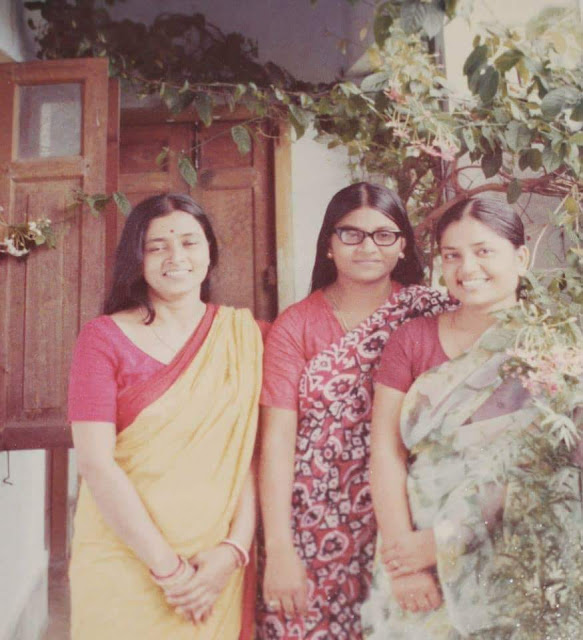I am going to be an empty nester soon. Tathoi
has decided to go to Georgetown, and not to Reed college. It seems that Georgetown
is her dream school; I am excited for her!
The college admission process
of this country is a very long one, just like it is in any other country. But I
have found that the US college admission process is so different from that in Bangladesh and India – it is unique! While
growing up, I remember them asking us to just memorize formulas for most of our
exams. My friends and I also had so much to say- but nobody ever asked us
anything. They just told us many things.
I peeked into Tathoi’s different
college applications and wanted to share bits and pieces from here and there- of
course with her permission! These are some of the prompts and answers.
“(1)
Our residential colleges regularly host conversations with guests representing
a wide range of experiences and accomplishments. What person, past or present,
would you invite to speak? What question would you ask?*
I would want to ask Charles Darwin his
opinion on the philosophy of Social Darwinism, and if he thought growing
inequality was a sign of natural selection playing its course. I would ask him:
“Are wealth and poverty determined by societal barriers or an individual’s
capabilities?”
(2) You are teaching a course at our
college. What is it called?*
If given the opportunity, I would want
to teach one of the following courses:
The History of Socialization behind Tea;
The Educational Potential of Musical
Theater; or,
The Psychology of Aromatherapy
(3) Think about an idea or topic that
has been intellectually exciting for you. Why are you drawn to it? *Min: 1 /
Max: 250
This year, I took a loosely structured,
independently driven psychology course online. One of the topics I learned
about was the biology behind neurotransmitters. I learned that endorphins, or
pain controlling neurotransmitters, have the same effect as morphine. This is
the reason that heroin and other opiates are so addictive; because they bind to
the same receptor site as endorphins, and signal to the brain a period of
complete and painless bliss. However, when people start taking opiates, the
body stops naturally producing endorphins; this means that when the drug wears
off, everything hurts. This is why withdrawal from opiates is so bad- to escape
the pain of withdrawal, users continue to use these drugs. This is known as
negative reinforcement and is a key reason underlying addiction to opiates.
Opioids are the synthetic derivations of
opiates- while opiates are formed naturally; opioids are formed in a lab. The
opioid epidemic continues to sweep across the U.S. and understanding why
addiction is so common in those who use these drugs is important to creating
treatments. I was drawn to this topic because it was the intersection between
my interests in the brain with a prominent social issue.
The reason why this idea was so
interesting was that I’ve always believed that drug addiction was more of a
medical issue than a moral one; and learning about the physical reasons
underlying withdrawal symptoms, this belief was reinforced. I think
understanding the science behind addiction is crucial to our society,
especially now.”
I remember after the Georgetown news came, my friends were pulling her legs as the “Future POTUS”, since Bill Clinton went to Georgetown. I told her, “I do not know about that but hope you bloom like the PUTUSH.” The similarity between the words ‘POTUS’ and ‘PUTUSH’ brought a smile to my lips. I found it quite funny, but Tathoi did not get it. Yes, this is how stories and love get lost in translation.
Putush is the Bengali name
for the flower Lantana. In our country, Putush is a roadside flower. It
blooms near the railroads in abundance and dazzle the eyes through the midday
sun. It does not need the care of a Persian rose; it just blooms on its own. I planted Putush in my Wisconsin garden
a few years back. Lots of butterflies came to the yellow, orange, and red shaded
flowers. In Wisconsin, people normally throw these plants in the compost pile at
the end of summer, as they cannot survive our harsh winter. But I could never
throw any living thing away in the trash bin. So, I had to bring the ‘Putush’
plant inside, but I did not know how a plant that loves the tropical
sun would survive inside our house in the Wisconsin winter. I just kept on taking
the plant outside each summer and bringing it back home every winter. I watered
it from time to time. But I never got to give it any fertilizer. In Wisconsin,
we cannot bring any plants outside until the 31st of May. We need to
wait until the outside night temperature becomes above 40℉ (4℃). It was still
cold out for tropical plants, but I found that my Putush had bloomed
inside the house yesterday: it had flooded all my darkness with light!
So many days have gone by, I could not even get out of bed.
I have looked at my plants, dogs, kids and told myself, ‘If they need to bloom,
they will bloom! Defying all the neglect.’
Putush flowers know how to bloom without care. My Tathoi is also blooming like that!















Wonderful.
ReplyDeleteI've always loved "putush," though I never knew it by that name 'til now. It's so hardy and adventurous, and ridiculously beautiful. Rather like Tathoi seems to be. Inaddition to being curious, insightful, and wise. (And I hope she never has the experience of neglect that roadside putush get.)
ReplyDeleteঅসাধারণ সুন্দর এক লেখা, শুরু থেকে শেষ পর্যন্ত।
ReplyDeleteআসক্তির পেছনের বিজ্ঞানটা যে কী, এটা এখনো জানা হয়নি। তবে ' কৌতুহল', peer pressure, trauma
এগুলো কারণের মধ্যে পড়ে।
অসাধারণ এক physiological effects এর বর্ণনা আপনি দিয়েছেন। এটা মস্তিষ্কের বিজ্ঞান।
আপনার লিখাতে মন্তব্য করার চাইতে চুপচাপ থাকাটা উপভোগ্য।